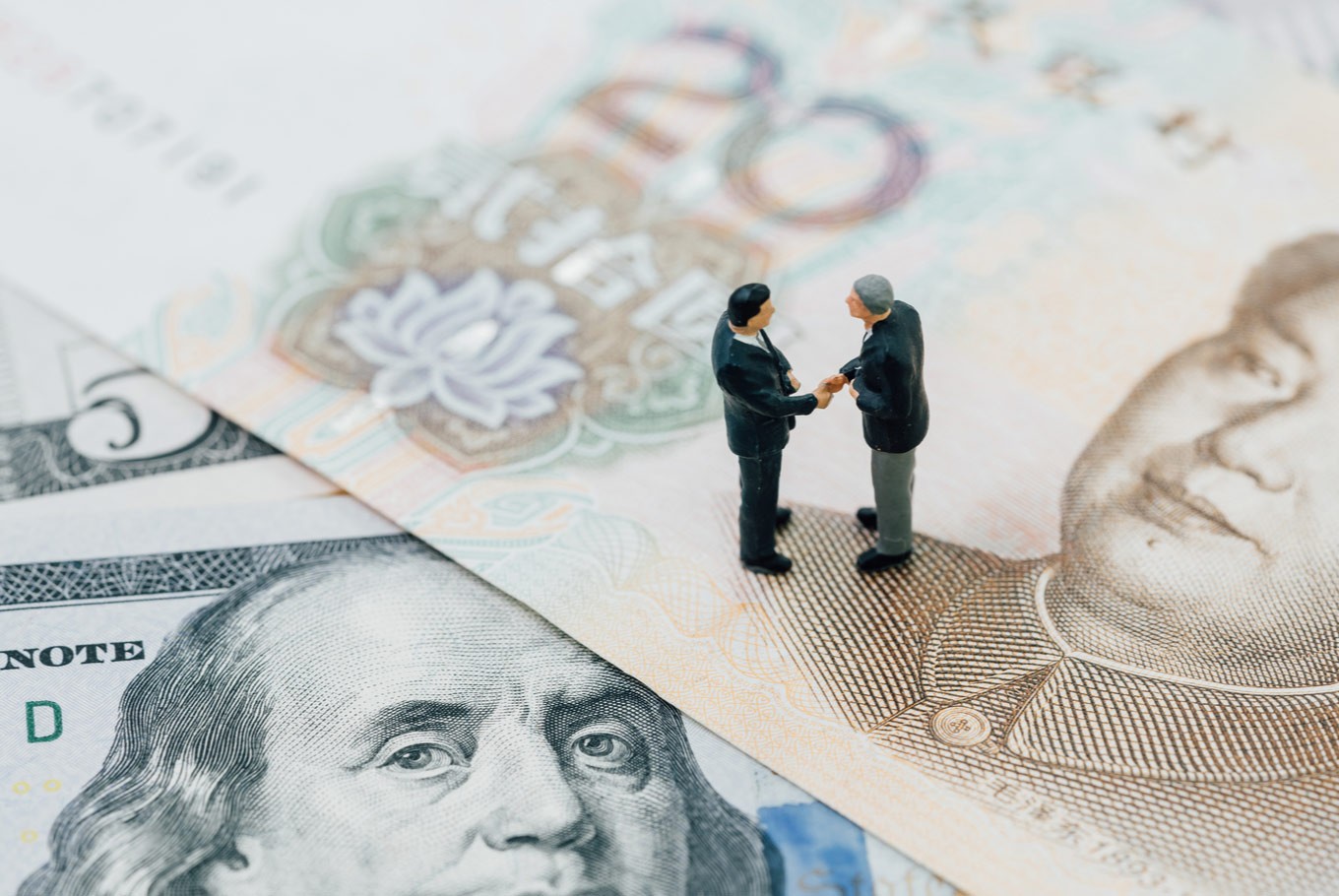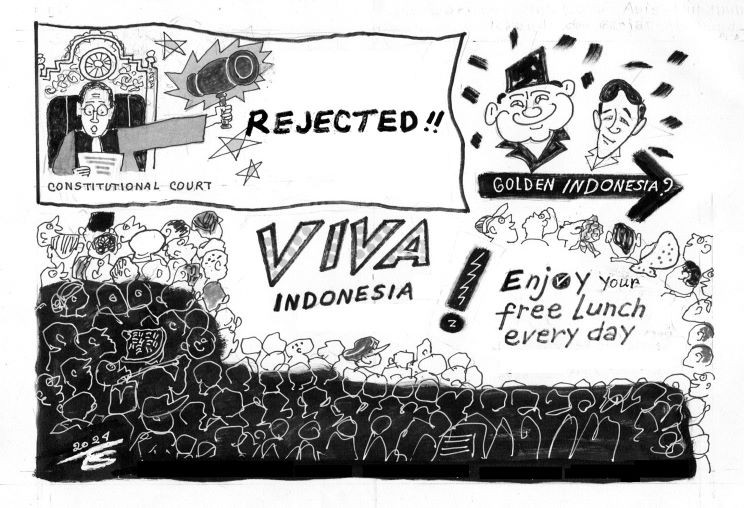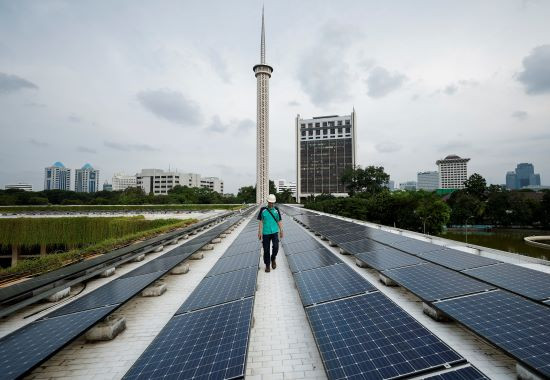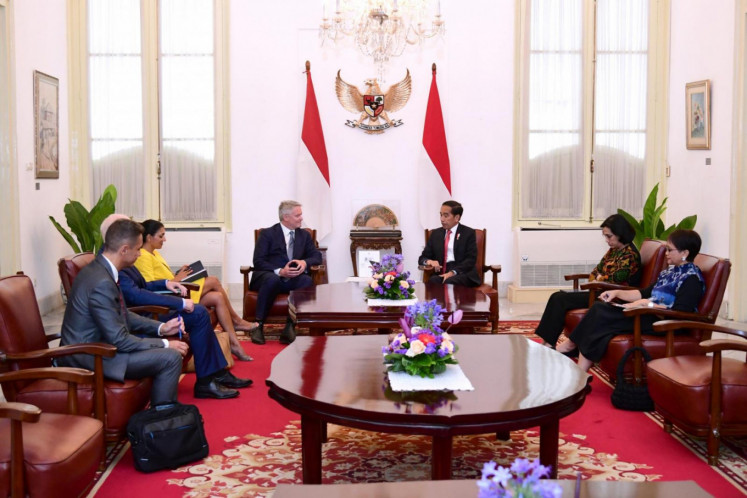Insight: Trade wars produce no heroes, only villains
Admittedly, there are winners and losers in every nation.
Change Size
 Pessimists warn that more frictions between American and China beyond trade are yet to come, and even a “new cold war” between the two countries is brewing. (Shutterstock/File)
Pessimists warn that more frictions between American and China beyond trade are yet to come, and even a “new cold war” between the two countries is brewing. (Shutterstock/File)
P
resident Joko “Jokowi” Widodo used The Avengers analogy at the World Economic Forum in Hanoi recently to argue that he was among the superheroes opposed resolutely to the idea of trade wars.
The comparison is an apt one. Although he declined to identify Thanos in the real-world scenario, the Indonesian leader definitely repudiated the notion — embodied in that character — that some must die so that others can survive in a world beleaguered by limited resources and population growth.
That Malthusian idea belongs to a pretechnological era, in which the survival of the fittest meant just this savage war of each against all. That was all the state of nature made possible. Today, technology has emerged as a source of great empowerment, so that more people can share what the Earth has to offer. But they must maximize the use of technological, human and natural resources.
Trade exemplifies the benefits of human competition through cooperation. The international division of labor gives nations a stake in one another’s prosperity. The global production chain that runs through countries like a golden thread integrates them into trade and investment networks of prosperity.
Thus, China does not rise at the United States expense; each rises because of the other.
Admittedly, there are winners and losers in every nation. Those who can make the most of technological know-how profit the most. Those who cannot, do not. Companies and workers in the US that kept up with change prospered. Those who could not suffered. But that holds true of workers in China, India, Indonesia and Singapore as well.
However, globalization prevents the emergence of national winners and losers. Would the US be at the vanguard of economic and technological change today but for globalization, a process that it — more than any other country — unleashed? America is a victor, not a loser, in the contest called globalization.
It is true that China would not have taken its unbelievable economic leap forward without access to global markets, but could those markets have become truly globalized in China’s absence? It is China’s competitive presence in global markets that has helped America move even higher. That is the paradoxical consequence of economic competition: It is a form of cooperation.
This is why the oncoming trade war between the two global giants is so worrying. It is one thing for nations to spar at the World Trade Organization (WTO), whose dispute resolution mechanism exists precisely to allow them to joust peacefully.
Tariffs are a different game altogether. They are the bullets of trade; they kill, maim and destroy the ecosystem, in which international trade can work for the collective good of mankind.
Indeed, there is a danger that trade wars will lead to real wars. The Smoot-Hawley Tariff Act helped trigger the Great Depression, which in turn, led to World War II. Beggar-thy-neighbor policies boomerang ultimately on proponents by shrinking the economic pie and making recourse to arms a natural alternative. If that alternative is tempting enough, great powers go to war and drag smaller nations with them into the quagmire.
It happened once. It can happen again.
If threats are taken seriously, it might be possible to find a solution to them. In the current global context, which is characterized by the countervailing strategies of the US and China, other economic players must throw their weight behind what they think is best for the global economy.
The WTO possesses both the legitimacy and clout to stay the course of globalization. The European Union is no pushover, even with Brexit looming. The Group of Seven and Group of 20 nations, the latter being more representative of the global economy than the former, both play a role in rejecting protectionism among their members.
Closer to home, ASEAN must retain its institutional ability to act as a common platform for its members in their dealings with the economic superpowers. This is easier said than done. Faced with the threat of protectionism, and the response to it, severing the links that bind ASEAN nations into global value chains of production, the easy choice is to bandwagon with one power or the other at the expense of ties with fellow ASEAN nations.
This would be the economic equivalent of strategic bandwagoning. Once the race to the bottom begins, nations enter a common free fall that negates years of learning to rise through cooperative competition. They compete to weaken others. Sadly, that is the process that the US has inaugurated with China. The victims will include ASEAN countries.
The regional grouping must respond to the challenge by displaying its capacity for coherence that was apparent during the Vietnam War and the Asian and global economic crises of the last century and this one. The danger is not that ASEAN would split, but that its members would go their separate ways in all but name.
The Avengers is set in fictional terrain. It is possible to watch that terrifying film and still remain calm because its malevolent universe is unlike this one. But art is often a harbinger of reality.
President Jokowi’s role remains the most viable one for the rest of us as well.
***
The writer, a former Cabinet secretary, is a senior analyst at P8 think tank, Jakarta.










